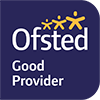Useful Tips
Useful Tips for GCSE & A Level Revision and Exams
Preparing for your GCSEs and A Levels can be challenging, but with the right strategies, you can make the process more manageable and effective. Here are some tips to help you succeed:
1. Create a Study Plan
- Organise Your Time: Break down your revision into manageable chunks and allocate specific times for each subject. Use a planner or digital calendar to keep track.
- Prioritise Subjects: Focus on subjects or topics you find most difficult first, but ensure you cover all areas.
2. Effective Study Techniques
- Active Learning: Engage with the material by summarising notes, teaching concepts to someone else, or creating mind maps.
- Practice Papers: Regularly complete past exam papers under timed conditions to familiarise yourself with the format and improve your time management.
3. Healthy Study Environment
- Find a Quiet Space: Choose a place free from distractions where you can concentrate.
- Stay Organised: Keep your study area tidy and have all necessary materials at hand.
4. Use a Variety of Resources
- Textbooks and Notes: Review your class notes and textbooks thoroughly.
- Online Resources: Utilise educational websites, videos, and apps to reinforce your learning.
5. Stay Healthy
- Balanced Diet: Eat nutritious meals to keep your energy levels up. Avoid too much caffeine and sugary snacks.
- Exercise: Regular physical activity can help reduce stress and improve concentration.
- Sleep Well: Aim for 7-9 hours of sleep each night to ensure your brain is well-rested.
6. Mindfulness and Stress Management
- Relaxation Techniques: Practice deep breathing, meditation, or yoga to stay calm and focused.
- Take Breaks: Use techniques like the Pomodoro method (25 minutes of study followed by a 5-minute break) to avoid burnout.
7. Stay Positive and Motivated
- Set Achievable Goals: Break your revision into small, manageable tasks and reward yourself when you achieve them.
- Positive Self-Talk: Encourage yourself with positive affirmations and focus on your progress.
8. Seek Support
- Ask for Help: If you're struggling with a particular topic, don't hesitate to ask teachers, friends, or family for help.
- Stay Connected: Keep in touch with friends and family for emotional support.
9. Exam Day Tips
- Be Prepared: Ensure you have all necessary materials (pens, pencils, calculator, etc.) ready the night before.
- Stay Calm: Take deep breaths and stay positive. Remember, you've prepared well.
- Read Instructions Carefully: Take your time to read through the exam instructions and questions thoroughly before starting.
10. After the Exams
- Reflect and Relax: Reflect on what went well and what could be improved for next time. Then, take some time to relax and recharge.
Remember, your mental and physical wellbeing is just as important as your academic performance. Good luck with your revision and exams!
How can parents help?
- Offer help as a tester, reader, source of knowledge, buyer (of books)
- Organise fun activities for them to reward their hard work
- Offer praise and rewards
- Work out time limits (for revision and social time)
- Ensure they have a suitable place for study (a quiet place without
- distractions)
What to avoid...
- Forcing them to revise in the way you think is best
- Getting stressed with them
- Making comparisons between them and others
- Believing the revision lies
Kooth - Useful Guides for Parents and Carers
 |
To view/download useful guides for Parents and Carers from Kooth please click here |


